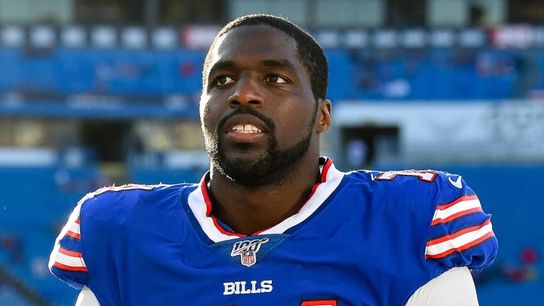In my previous job before this one I worked for the National Football Foundation. Part of those duties were to assist with the annual NFF Dinner at the Waldorf-Astoria in New York. If you're not familiar, the Dinner is a black-tie affair on the Tuesday night after Championship Saturday in December, where the Who's Who of the college football industry gather to induct the newest class of College Football Hall of Famers and award the William V. Campbell Trophy, viewed as the Academic Heisman.
My first Dinner, in 2010, ended with Sam Acho, a Texas defensive end, winning the Campbell Trophy. Before a room filled with coaches, ADs, presidents, business luminaries from the financial, sports, tech and media industries, Acho wowed the room. I recall people -- important people, whose names you would know -- coming away thinking Acho would be the President of the United States some day.
Ten years later, Acho is not yet the President, but I wouldn't rule out that possibility just yet.
A fourth-round pick of the Arizona Cardinals, Acho has crafted a career as an NFL journeyman -- four years in Arizona, four more in Chicago, a cup of coffee in Buffalo and now a roster spot in Tampa Bay.
With 110 career appearances, 57 starts, 241 tackles and 18 sacks, Acho's the type of worker bee that may not show up on All-Pro and Pro Bowl lists, but is no less necessary to build an effective roster. So well regarded is Acho among his peers that he spent the 2018 season as the vice president of the NFL Players Association's executive committee.
That experience gave him the opportunity to sit in meetings with NFL owners but, as he writes in the Players Tribune, nothing peeled back the curtain for how The League really works than an appearance on First Take to discuss the league's recent Rooney Rule proposal. The proposal, which has since been tabled, was sparked after April's draft -- which featured shots of coaches and GM's homes, since the coronavirus forced everyone to their homes -- laid bare the fact that the NFL has only three black head coaches, two black GMs, two black offensive coordinators and zero black majority owners.
https://www.youtube.com/watch?v=PB7VAuEgJN0
Afterward, Acho had numerous coaches and executives of color reach out to explain their experiences as they futilely tried to climb the NFL's corporate ladder.
"All I’m asking for is a fair chance," one assistant GM told Acho. "The same opportunity that some of these other guys get. No matter what I do, I keep getting passed up."
Conversations with those people led Acho to develop this 4-point plan to increase diversity among the NFL's coaching staffs and front offices:
1. Diversity Training
"Ultimately, owners are the ones who hire and fire GMs and coaches," Acho wrote. "In this capacity, they’ve clearly failed when it comes to minority hiring. Given that they oversee a league in which the majority of the players are a different race than they are, it seems clear they need training in diversity and bias to further expand their perspectives."
2. A Symposium for Minority Candidates
This would gather two minority head coaching candidates and two minority GM candidates from all 32 organizations -- 128 people in all -- with owners for a symposium each June. Minority candidates could showcase their talents and capabilities to the NFL's hiring class, and owners could explain what they're looking for in hiring head coaches and GMs.
3. A Pipeline for Quality Control Hires
Quality control jobs are entry-level positions coaches use to build their careers, and minorities believe they are not given fair shots at those jobs.
“Quality Control positions are the hardest to get,” one position coach told Acho. “Most teams have four quality control coaches, and those positions rarely go to minorities. At least two of them should. I’m getting passed over by Division III coaches who have no NFL experience.”
The NFL has attempted to address this by establishing year-round fellowships among all 32 teams.
4. Listen
This is something we can all do more of, but it's especially important if you're a gatekeeper in an industry with a documented problem giving equal access to jobs to all segments of society.
"Through Inspire Change, the NFL, Players and our partners have supported programs and initiatives throughout the country to address systemic racism," the NFL tweeted Thursday. "We will continue using our platform to challenge the injustice around us."
This would be a good place to start.
